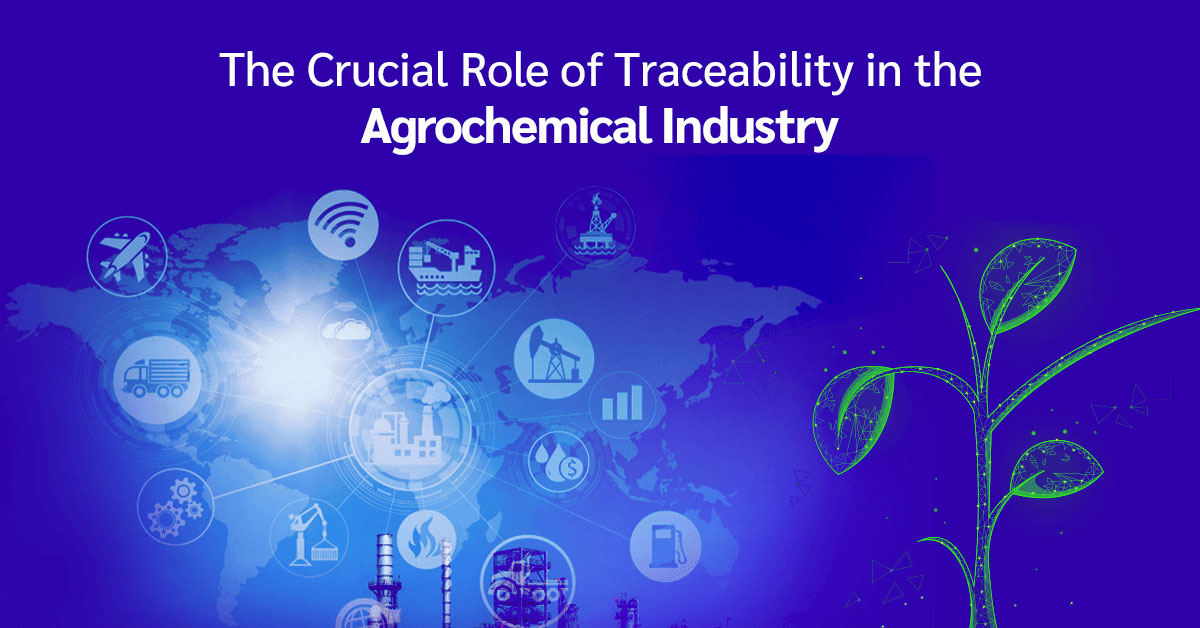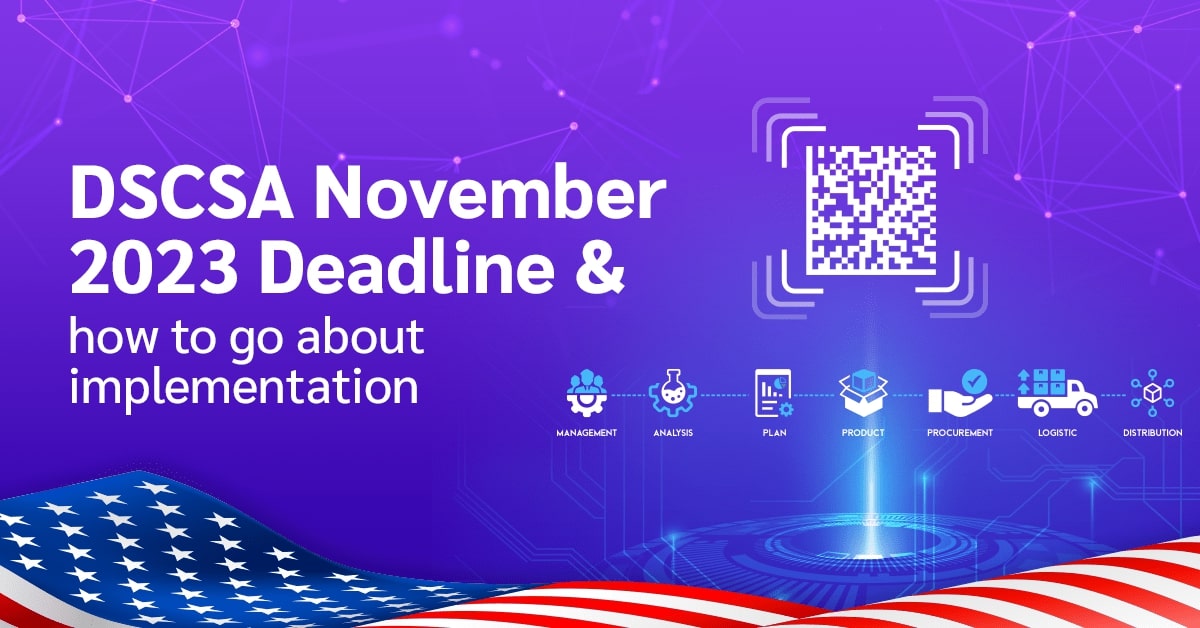When we think of the agrochemical industry, traceability is crucial. Traceability, in this context, refers to the ability to track every step of an agrochemical product’s journey from production to final use.
Jekson Vision is known to provide an “End to End” Solution to the globally renowned players in the segment. It’s an essential tool ensuring food safety, sustainable agriculture, and protection against counterfeit products.
Objectives of Agrochemical Traceability
Traceability in the agrochemical industry serves several crucial objectives, each contributing to overall agricultural safety and sustainability:
- Food Safety: Traceability plays a vital role in ensuring safe levels of pesticide use on crops. It also facilitates rapid recall of products, safeguarding consumer health.
- Sustainable Agriculture: It supports sustainable farming initiatives by promoting the responsible use of agrochemicals. This is increasingly important in a world where sustainable practices are becoming the norm.
- Counterfeit Protection: Traceability is key in fighting the spread of counterfeit agrochemicals. By tracking the origin and distribution of these products, it helps maintain the integrity of brands and the safety of agricultural produce.
Traceability in the agrochemical industry is not just a regulatory requirement but a crucial component in building a sustainable, safe, and reliable food supply chain that ensures authenticity & safety.
As the industry continues to evolve, the role of traceability is becoming even more significant, helping to ensure that agricultural practices are both productive and sustainable.
Traceability Technologies in the Agrochemical Industry
In the agrochemical industry, several technologies have been adopted to enhance traceability. These include serialization, barcodes, RFID tags, QR codes, and blockchain. Each plays a crucial role in product identification and data management.
Here’s how these technologies are revolutionizing traceability:
- Serialization and Barcodes: These are fundamental in tracking products through the supply chain. Serialization involves assigning unique identifiers to each product, while barcodes facilitate easy and quick data capture.
- RFID Tags: Radio Frequency Identification tags store data that can be retrieved wirelessly. They are valuable for inventory level and location tracking, thus improving supply chain efficiency.
- QR Codes: Quick Response codes are versatile and can store more data than barcodes. They’re easily scannable using smartphones, making them user-friendly for tracking and tracing.
- Blockchain: This technology is gaining popularity due to its ability to provide end-to-end traceability and create time-stamped, unalterable, and auditable records. It’s especially useful for combating counterfeiting and illegal refilling of containers.
These technologies collectively aid in real-time tracking, monitoring, and enhancing decision-making processes. They are instrumental in increasing production efficiency, product quality inspection, and ensuring compliance with regulatory standards.
Regulatory Compliance and Standards
Regulatory compliance and adherence to standards are pivotal for the agrochemical industry. Both international and national regulations govern the traceability of agrochemical products.
Let’s break down the various levels of regulation that are essential for compliance in the agrochemical industry:
- International Standards: These include guidelines and benchmarks set by global organizations, ensuring that products meet safety and quality standards across different countries.
- National Regulations: Each country may have its own set of regulations governing the traceability of agrochemical products. Compliance with these regulations is essential for legal operation and market access.
- Compliance Requirements: Agrochemical companies are required to comply with these standards and regulations. This includes ensuring that their products are traceable throughout the supply chain, from manufacturing to distribution and final use. It also involves maintaining records that prove compliance and readiness for audits and inspections.
Staying ahead in the agrochemical industry means not only meeting but exceeding regulatory compliance standards. Jekson Vision offers advanced traceability systems that do just that.
With Jekson’s state-of-the-art solutions, you can ensure your products are consistently traceable from manufacture to end use.
Overcoming Challenges in Implementing Traceability
Implementing traceability in the agrochemical industry comes with its own set of challenges. One major challenge is the high cost involved in establishing and maintaining traceability systems.
Another significant issue is the complexity of integrating these systems across varied and sometimes fragmented supply chains.
Additionally, there are concerns about ensuring data privacy. Finally, robust security measures are essential to protect against cyber threats.
To overcome these challenges, the industry can adopt several solutions:
- Cost Management: Innovations in technology can help reduce costs. For instance, using more cost-effective tracking technologies like simpler barcode systems or leveraging existing infrastructure can minimize expenses.
- Simplifying Complexity: Employing user-friendly interfaces and systems that integrate smoothly with existing workflows can reduce the complexity of traceability systems.
- Data Privacy and Security: Implementing strong cybersecurity measures and clear data governance policies ensures data privacy and security. Regular audits and updates to these systems can further strengthen them against evolving threats.
- Farmer Adoption and Training: Educating farmers and stakeholders about the benefits of traceability can enhance adoption rates. Providing training and support helps in a seamless integration of these technologies into their daily operations.
Benefits of Traceability in the Agrochemical Industry
Traceability in the agrochemical industry offers both quantitative and qualitative benefits:
- Improved Safety and Compliance: Traceability systems help ensure that agrochemical products meet safety standards and comply with regulatory requirements, thus protecting consumer health and the environment.
- Enhanced Brand Integrity and Trust: By guaranteeing the authenticity of products, traceability helps build consumer trust and protect brand reputation against counterfeiting.
- Market Access and Sustainability: Traceability systems can facilitate market access by proving compliance with international standards and support sustainability initiatives by ensuring the responsible use of agrochemicals.
By addressing challenges and leveraging the benefits of traceability, the agrochemical industry can significantly improve safety, efficiency, and sustainability in its operations.
Conclusion
Traceability is crucial in the agrochemical industry for ensuring food safety, promoting sustainable agriculture, and combating counterfeit products. It’s vital for stakeholders to invest in and support traceability systems.
This commitment not only improves product integrity and trust but also aids in creating a more sustainable and transparent food system.
The industry’s future growth and sustainability depend on adapting to new technologies and evolving regulatory standards to match global safety standards and compliance.
In this rapidly advancing sector, embracing innovative traceability solutions is key. Jekson Vision offers cutting-edge systems tailored for the agrochemical industry, ensuring your products meet the highest standards of safety and compliance.
With Jekson Vision, you’re not just investing in traceability; you’re investing in the future of agriculture.
To know more or get a demo, write to us at marketing@jeksonvision.com or WhatsApp us at +91 93282 33954.







